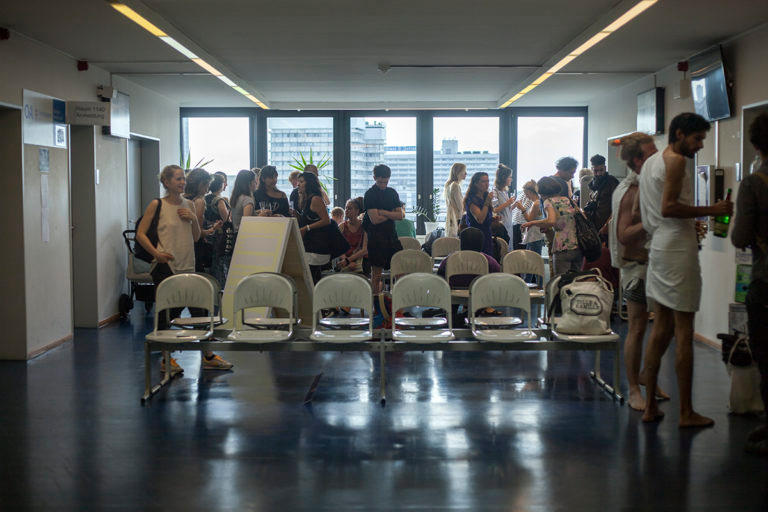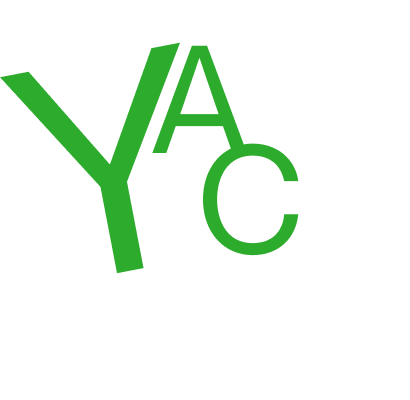Bo Choy
Interview by Paul Harrison
-
Published July 2018
-
Hi, Bo Choy... I am really grateful to one of our teachers Hester Reeve for introducing me to your work. You studied at Chelsea College of Arts in London and your work is primarily geared towards using film to find ways to express social and political phenomenon in new ways. I also have some experience in attempting to make art in the medium of moving image, and now I feel perhaps we are united in thinking that writing is the start of many things. To start this conversation I would like to take the opportunity to understand the moment when you became aware of your creativity and the subsequent need to express yourself. Perhaps the first questions should be a long these lines:
When did you first decide to make art, do you have a clear distinct memory of an image you made? Initially when you started producing work what/who were the major influences driving you?
I came to art through cinema, my first love. I started drawing classes as a way to improve my storyboarding skills and then discovered art and never looked back. I remember being very moved by Mike Nelson’s installation, Coral Reef (2001? 2011?). That was when I realised how an experience of a work of art can touch upon one’s emotions deeply and evoke an immediacy in the viewer. That’s what I hope to achieve in my work.

The Chelsea Death and Horror Show, collaborative performance with John Flindt, (2015).
Sound is such an important aspect of using video in effective ways and I love the affirmation of identity in Art I Am (2017) you have at the end, after describing the possible I's in the studio, your voice raises in an affirmation. We have both been touched and influenced by the legacy of French post structuralism... recently I read the whole text of Foucault's Technologies of the Self, in which he ends on suggesting the creation of a voice is what should be the outcome of this long genealogical history of subjects relating to the self. I want to understand how you situate yourself regarding the popular interpretation of a French strand of philosophy that strongly suggested what we call the self to be either non existent or to be artificially created? How is this present in artistic modes of being?
It’s interesting that you picked up the ‘I’ in the short video Art I Am (2017). That piece grew out of my frustration of having an artist’s studio, being in it but unable to make any art, or what deems to be ‘art’ by most people. I was sharing with a few sculptors and a painter at the time and was very interested in how I could ‘feel’ and ‘smell’ art in their spaces. I was curious to know what it’d be like to become art - their art - in those spaces.
I guess that brings me to your question of the self. Our sense of self is so bounded by our senses which are extremely limited. In some instances, with discipline and prolonged training, we can free our subjectivities from our senses and enjoy a brief unity with our surroundings. Mostly, the self is an illusion but we are all so driven by it, it feels so palpable so therefore it must be real. This ambivalence is more heightened in art; it predicates on the line between imagination and reality. Some artists try to obliterate the ‘I’ in their art with the result of a work that is wholly visceral and personal while others use the personal to point to the universal very effectively.
Art I am, film, (2017).
Mike Nelson's work is immense and the spaces he creates I want to experience one day. I have often spent time musing on the strange phrase or utterance 'life is a movie' and how film has this very powerful quality a kind of material formed from time. It has made me think of a primordial chaos, a fearsome ecstatic sea of potential forms, that is beyond history. I am interested that you acknowledge two strong ways of approaching the self: a) Obliteration b) The use of the self as a place from which to reach a larger connection. I want to invite you to go deeper and elaborate on whether you partake in one of the two positions or perhaps you hold a different relation to either yourself or the concept of the self? Are there any artists that you admire, have worked with, or want to work with that emulate either bad or good relations to a self?
Yes, I oscillate between the two. Or perhaps it’s more like a process where I start with obliteration then decide that it is only through the self that I can communicate to reach a larger connection. Conversely, I’d like my audience to receive the message through my personal position but eventually get to the point where actually I the artist does not exist. I suppose I am referring here the self as the artist’s subjectivity and the ‘personal’. The obvious one is Simone Weil and her writing on ‘de-selfing’. She was one of the few who truly lived by what she believed in. The films of Moyra Davey have been a tremendous influence on my work, her works seamlessly weave personal history and historical enquiry; somehow this bringing together of the two creates a wonderful distance in which the audience can indulge and reflect on. Since the start of researching Anat’s Party, I have been collecting stories of writers and artists who have committed suicide – the ultimate act of self-obliteration. I am intrigued by how their last act frames their literary/artistic legacy and the idea of the total exercise of free will.

Ordnungsamt Love Affair, Weisensee Triannale initiated by Vlado Velkov,
Mitte, Berlin. (2015).
I wonder how you feel about the words 'authenticity' and the 'inauthentic' are they even important to today's artists? I ask this because I am unconvinced that art has not survived fully unscathed from the dominance of market and money driven culture. If this be true and art is impossible because for whatever reason ... let's say authentic art manifests not via valuation, by possession, or the need to identify as the creator. But, instead reveals itself in the very relations a subject puts in place or chooses to make? Art, then would not depend on object orientated production but could return to purposes that has been slowly eroded in the haze of pseudo-professionalism, trends, hype, and commodification. Purposes such as concept and community creation, enjoyment/entertainment, and assumption smashing. However, maybe I just say this to provoke you into defending art today?
I am in a good mood today, so I will try and defend it but otherwise I would have said that it is indefensible - Art is corrupt, pointless and a tool the elite use to pass time and make themselves feel good. Of course, I don’t deny that by having gone to art school and making work I’m also complicit to it all, however unwillingly.
I went through a period of art-withdrawal where I was crippled precisely by this idea of ‘inauthenticity’ but eventually came out of it abandoning the idea that art has to necessarily have political or social agency. The possibility of thoughts and feelings opening up from encountering an artwork is perhaps sufficient. And then perhaps you are being galvanised by that little thought or feeling. It is much more important to make art politically than to make political art. Likewise, it’s more important to live your politics rather than knowing it.
I want to congratulate you on a the completion of un/folding (2016) a great video work that has in the beginning of the narrative a mention of an 'ephemeral unity where the past, present, and future conjoin', and this sets the tone nicely. My favourite part begins at 08:16 where you question rationalism and discuss romanticism - entertaining or "rolling with the idea of another persons life being implanted into yours". This film offers a lot and on second viewing I really got a sense of how your gaze literally honed in on an element of irrationality to our existence. I wondered and presumed that there was footage of the cultural revolution in this work is this true? If so how strong or personal is your connection to an event of such massive global importance? Also, un/folding is really great and I wonder how you feel about it now that it has been exhibited?
Indeed it was the cultural revolution. The prose around the cultural revolution was formed from an anecdote recounted by my mother, about her experience when the Red Guards came to her home when she was around twelve or thirteen years old. Irrationality defined that period of time when the young, fervent and politicised student populace led a long period of systematic destruction in order to establish what was thought to be a better society.
Paul you are also an artist so perhaps you could sympathise with me on this – I feel somehow detached from it and sometimes surprised that I made it. I suppose your work is always just a snapshot of who you were at that particular point of making it. I think maybe that’s why I can watch it more at ease now than when I’d just made it – I was too close to it and felt too self-conscious. I still cringe though looking at my childhood photos!
Un/Folding in, film, 14:03, (2016).

Un/Folding in, Screenshot, 2016.
-
Bo Choy is an artist, writer, and predominantly a film maker. Born in Hong Kong, she has studied and lived in London for the last eight years. Having graduated from Chelsea College of Arts and now about to begin a masters at the Slade school of Fine Art. Recently, her film Birthday Party (2018) was screened at Auto Italia in discussion with Oreet Ashery, in London.
http://www.bochoy.com/
-
If you like this why not read our interview with Bex Ilsley
-
© 2013 - 2018 YAC | Young Artists in Conversation ALL RIGHTS RESERVED
